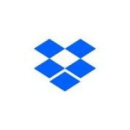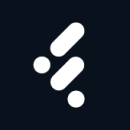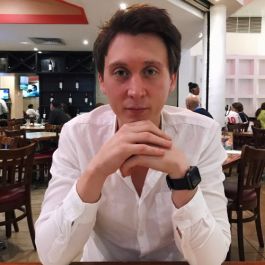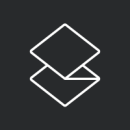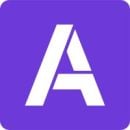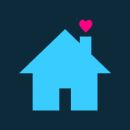One of the most effective ways to simplify the job search is to center it around your interests or ambitions. Note: These don’t have to be lifelong interests or grand ambitions. They can be practical and rooted in everyday life, as was the case with Rodrigo Noronha, senior software engineer at Digit. Noronha recently joined the fintech company not because it’s out to “change the world,” but because its mission connected with him on a personal level.
“My spouse and I have spent an inordinate amount of time figuring out how, exactly, to make our finances healthy,” Noronha said. “Digit’s mission to make financial health effortless for everyone really spoke to me: The idea of working for a company that would turn all of those hours of research into a single product that just quietly keeps money where it should be was super appealing.”
It’s no secret that engineers are perpetually in high demand in the Bay Area. That said, while it may be easy to receive an offer, getting “the right offer,” one that actually excites you and energizes you for that first day in the office, is much more difficult. It can be done, though, as Noronha and the several other developers we spoke with prove. Continue reading to learn more about what brought them to their companies, how they stood out during their interviews and what’s so great about the work they’re doing now.
What attracted you to apply for a role at Dropbox in the first place?
They actually reached out to me first! I happened to be looking to move to a new company at the time, and Dropbox happened to be starting their transition to virtual first. I tend to move around a lot, so the freedom to bounce around the United States appealed to me.
I think that my experience outside of the traditional front-end and back-end knowledge base came through in my interviews.”
Which skill or experience do you think helped distinguish you during your job search?
While I have been programming for a decade and some change, I think that my experience outside of the traditional front-end and back-end knowledge base came through in my interviews. I run my own servers at home and have done network engineering professionally, so I have a lot of practice in all the steps between deploying bare metal servers and writing and deploying apps on them.
What do you enjoy most about developing Dropbox’s technology, and what do you find most exciting or challenging?
I’m actually in the middle of a big push to bring WebAssembly into use at Dropbox, so that’s what I’m excited about at the moment. I think that it will enable better user experiences and I can’t wait to push the boundaries of what users think is possible in the browser.
What attracted you to apply for a role at Finix in the first place?
I love the startup culture where there aren’t strict roles and responsibilities. Instead, you contribute in any way you can while acquiring new skills and learning about a company’s inner workings. With a background in data science, I enjoy working on all things data and not necessarily having one focus area. Specifically for Finix, I became interested when I realized that the role involved working with non-technical stakeholders and acting as a bridge between the data engineering and operations teams.
I’ve worked cross-functionally at almost every position in my career, and feeling more connected with other departments makes me better at problem-solving. During the interview process I met one-on-one with our CTO and CEO, showing me how much Finix cares about culture and mentorship right out of the gate. I wasn’t even hired yet and I was made to feel important and valued. And that’s still the case.
I’m not only building dashboards but also laying the groundwork for advanced analytics solutions.”
Which skill or experience do you think helped distinguish you during your job search?
I believe having a good balance of hard and soft skills distinguished me during the interview process. By hard skills, I mean the essential toolbox of a data analyst: Python, SQL and business intelligence tools like Tableau and Looker. By soft skills, I mean being communicative and enthusiastic. I genuinely enjoy providing analytical solutions that facilitate the work of my colleagues and fulfill the needs of customers.
What do you enjoy most about developing Finix’s technology, and what do you find most exciting or challenging?
When it comes to fintech, and payments specifically, data is the lifeline. Making sure the right people get the right amount of money at the right time is a data problem. From ensuring our customers are compliant to fighting fraud in real time, there are huge opportunities for data scientists in fintech. For me, I’m not only building dashboards that serve the immediate needs of our customers but also laying the groundwork for advanced analytics solutions as our data becomes richer and more complex.
As you can imagine, payments are very complicated! It’s a web of operations, compliance, accounting, security, risk and fraud management all built on poorly documented and inconsistent legacy systems. This gets even messier when you enter the world of payments for platforms like Finix. Before joining, I did not have experience in the payments industry, so I am excited by how much there is to learn. Each day, I’m getting closer to acquiring the domain knowledge critical to becoming a well-seasoned fintech data professional.
What attracted you to apply for a role at Digit in the first place?
My spouse and I have spent an inordinate amount of time figuring out how, exactly, to make our finances healthy. It’s one of those things that’s really easy to get wrong. It takes a lot of work to have your money in the right place at the right time and if you mess it up you’re either missing out or getting charged fees. Digit’s mission to make financial health effortless for everyone really spoke to me. The idea of working for a company that would turn all of those hours of research into a single product that just quietly keeps money where it should be was super appealing.
One of the things that helped was my firm grasp on the connections between the different parts that comprise a ‘full stack.’”
Which skill or experience do you think helped distinguish you during your job search?
Well, first, as someone who’s been on both sides, I have to say that doing well in an interview is a distinct skill of its own, in much the same way that you can know the material but still be bad at taking tests. Make sure you can express the best version of yourself in the interview, whatever that means to you, whether it’s going through some online exercises or running mock interviews with your friends.
Beyond that, as a full-stack software engineer, I think one of the things that helped was having a firm grasp on the connections between the different parts that comprise a “full stack.” It’s easy to lose sight of how data from the front end is communicated to the back end and then persisted in a database when all of that’s handled for you by an infrastructure team. It can be helpful to take a step back and either examine how that works in your current stack or spin up a new project in whatever shiny framework has caught your eye and see how they do things.
What do you enjoy most about developing Digit’s technology, and what do you find most exciting or challenging?
Digit is one of the smaller companies I’ve worked for, which means there’s still room to improve people’s lives through the judicious application of software infrastructure. It’s been amazing to see what new internal productivity features the team has added even since I started, and I’ve recently started adding some of my own contributions as well. Product work is also enjoyably different.
Since Digit is a fintech, we care about being able to communicate precisely and accurately with our users, especially when it comes to money movement. We have a lot of leeway to track down and investigate weird edge cases in that realm. Despite its size, Digit is probably one of the companies with the greatest operational rigor I’ve worked at so far.
Another aspect that varies greatly between different roles is your stakeholders, and this is the closest I’ve ever worked with the legal team. The Digit legal team is just amazing. Not only are they great at breaking down the relevant laws into something I can understand at every level, but they’re also passionate about law and have great senses of humor.
What attracted you to apply for a role at Superhuman in the first place?
The attention to detail throughout the interview process. To start with, the first message that I got from them felt really personal and I could tell that they took the time to really understand my profile before reaching out. During the first screen call, I was amazed by the quality of the questions, which were the perfect balance between theory and practice. Also, the interviewer was really kind and collaborative, and that made it easy to imagine working with them. Lastly, the problem they are trying to solve at Superhuman is not an easy one. That was exactly what I was searching for in the next chapter in my career.
I have the opportunity to develop an amazing product that I can use to be more productive at my job.”
Which skill or experience do you think helped distinguish you during your job search?
I believe what helped the most was the adventure I traveled during my career. I started as a back-end developer, but after a few years, I decided to shift my career and focus on the iOS development world. I had the chance to spend a reasonable amount of years expanding my knowledge as an iOS developer before actually having the chance to lead my own team. So that, in addition to how much I enjoy working with people and helping them resolve any problem they might have, was a quality that helped me out a lot while I was applying to be the next mobile engineer manager at Superhuman.
What do you enjoy most about developing Superhuman’s technology, and what do you find most exciting or challenging?
I have the opportunity to develop an amazing product that I can use to be more productive at my job. I’m also amazed by the amount of love that we receive on Twitter from our customers. That motivates me to give my best because I know how much impact my work has on so many people. Superhuman is the outcome of an incredible team — to which I am proud to belong — dedicated to building a product that is highly performant and has a world-class user experience. Being able to contribute to such a product is definitively the biggest challenge I have had in my career.
What attracted you to apply for a role at Taskrabbit in the first place?
The first thing that attracted me to Taskrabbit was the platform and the two-sided marketplace. Coming from a software engineering background, I was really interested in Taskrabbit’s web and mobile platform that served both clients and taskers. I knew I wanted to be in this space not only to learn more about how the platforms were engineered but also how the marketplace worked business-wise! Knowing that I could grow and learn in this environment plus be a part of improving it was a great opportunity. As an engineering manager, my goal is to help drive the teams who develop the Taskrabbit platform.
Knowing that I could grow and learn in this environment plus be a part of improving it was a great opportunity.”
Which skill or experience do you think helped distinguish you during your job search?
I think one of my strongest traits as an engineering manager is the ability to arrange and rally individuals and teams together. You have to build rapport with people and find what keeps them going and encourage them to focus on their strengths rather than their weaknesses or things that drain rather than excite them. I’m very process driven and I love documentation, which I think helps distinguish me from others.
What do you enjoy most about developing Taskrabbit’s technology, and what do you find most exciting or challenging?
I enjoy working with smart individuals who genuinely want to do their best. From the collaborative “level up” meetings and “architecture hours” to the company-wide engineering demos, I can see that everyone puts their all into their craft. I see the major effort through not only the amazing technical presentations and demos that people give but also the small things, like detailed, useful comments in a PR from people on other pods and teams.
What attracted you to apply for a role at Angle Health in the first place?
I was very interested in the idea of working at a startup and building something from the ground up. I wanted to be an engineer in a role where I could see my work having a direct impact and meaning, and I wouldn’t get that at a large company.
I was very interested in the idea of working at a startup and building something from the ground up.”
Which skill or experience do you think helped distinguish you during your job search?
In college, a friend connected me to other students who had an idea for a tech company. I was tasked with building the application from the very beginning and acting as a designer, product manager and engineer. This experience prepared me well because I learned to work autonomously, diligently and cross-functionally. This made me stand out as I was able to gain experience in what it was like to work in the startup space. I was also able to gain experience seeing the whole scope of a business as opposed to working in a focused function.
What do you enjoy most about developing Angle Health’s technology, and what do you find most exciting or challenging?
Our work has a critical and personal interaction with the user. It has the power to make the healthcare experience for the user so much better than what is currently available in the market, and we have only been able to scrape the surface of what can be done in the space. It is most exciting and challenging to find what our users need or want in their health care experience and then deliver upon their expectations.
What attracted you to apply for a role at ujet.cx in the first place?
I was interested in joining the ujet.cx team because the company is out to improve customer service by streamlining the experience for all parties involved. It’s achieving this by weaving great ideas into one of the most advanced technology stacks I’ve had the pleasure of using.
On a day-to-day basis, I’m working with the best engineers in the field, both inside and outside of ujet.cx.”
Which skill or experience do you think helped distinguish you during your job search?
In my career, I’ve strived to understand distributed computing systems and how they can be leveraged to solve a variety of problems that hyper growth companies are often faced with. I have knowledge and experience of cloud native technologies, such as Kubernetes and service meshes, and how they can be used to help solve scaling and reliability problems, among many others. When coupling this technical know-how with site reliability engineering and the collaborative DevOps mindset, I knew that I could further enable ujet.cx’s vision of improving customer experience at a global scale.
What do you enjoy most about developing ujet.cx’s technology, and what do you find most exciting or challenging?
I’d say that I’m very lucky to be a part of such a great SRE team. On a day-to-day basis, I’m working with the best engineers in the field, both inside and outside of ujet.cx.
ujet.cx is a pioneer in the contact center as a service, or CCaaS, space and aims to harness advantageous technologies and industry best practices in order to maintain its competitive edge. ujet.cx strives to bring the best out of its engineers and does so by recognizing that it is the collaborative effort of exceptional individuals that drives the success of our platform and ultimately improves customer satisfaction.
What attracted you to apply for a role at Zumper in the first place?
I was stuck at a job where I did not get much opportunity to do any hands-on development work, which I missed. While weighing my options, I spoke with the hiring team at Zumper and learned that engineering managers are free to get as technically hands on as they like. They are also working with a tech stack I was very interested in. Last but not least, the Zumper mission to ease the renting process for the underserved population in our country is both noble and challenging. It ultimately became a no-brainer to choose Zumper as my new home!
I find myself learning new things from just about everyone all the time.”
Which skill or experience do you think helped distinguish you during your job search?
My extensive experience in both hands-on development work and being a people manager gave me more options during my job search.
What do you enjoy most about developing Zumper’s technology, and what do you find most exciting or challenging?
The engineering team at Zumper is so talented that I find myself learning new things from just about everyone all the time. Moving from the .Net world into Python and Django has also been fun. It’s nice being able to work on something new for a change.



